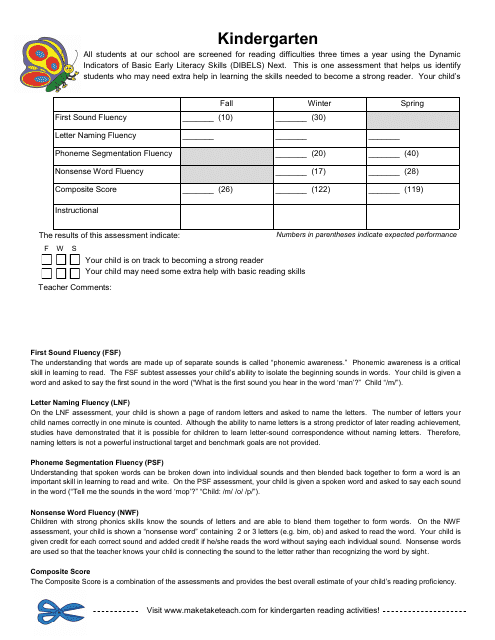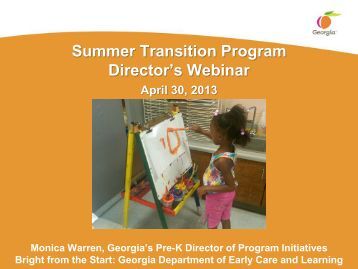Why Choose Early Head Start. Early Head Start is a comprehensive early childhood program serving low-income children from birth to age three and pregnant women. Why Choose Head Start. Head Start is a comprehensive early childhood development program serving low-income three, four and five-year-old children and their families. An educationally based comprehensive preschool program designed for children ages 3 to 5 with emphasis in three major areas: Early Childhood Development and Health Services, Family and Community Partnerships, and Program Design and Management. Early Head Start serves families with children ages 0 to 3.
- Georgia Pre K Program Requirements
- Free Pre K Schools
- Download Free Georgia Head Start Pre K Program Budget
- Download Free Georgia Head Start Pre K Program Requirements
Head Start Quality child care services provided to three, four and five year olds at NAEYC (National Association for the Education of Young Children) accredited, licensed facilities. Enrolled children are provided educational activities using the Creative Curriculum and children’s knowledge are tracked and outcomes provided to parents during the fall, winter and spring. An enriched educational environment is provided to foster an enjoyment for learning, develop a positive attitude about school and to help each child reach their maximum potential. The program, federally funded, also supports the children with nutritious meals, health services and transportation. Enrolled families are also provided social services, parent involvement activities and training opportunities. All families must be enrolled based on eligibility requirements. The mission of the program is to value a high standard of living for all persons living within its service area. The program will involve itself in the provision of services that will improve the quality of life for children, families, and employees through education and comprehensive social services. Head Start Centers
Pre-K This state, lottery funded program provides services to four year old children in seven (7) classrooms located in Bryan, Camden, Glynn, Liberty, Tattnall and Wayne counties. These classrooms use the Creative Curriculum and provide developmentally appropriate activities in areas that are rich in materials for the children’s exploration and learning. Field trips are also used to compliment the lessons. A program assessment, the CLASS is used to ensure that teachers are providing continuous quality care to the children. These classrooms are monitored by the staff of the Department of Early Care and Learning. Pre K Centers
Early Head Start Infant, toddler and services to pregnant women provided in a center-based setting to promote early developmental learning. Children are provided learning activities in a comfortable, home- like atmosphere. The classroom provides various places to explore, supporting all the functional areas such as gross motor activities, early literacy development, symbolic or dramatic play, manipulative play, and sensory play. Children with disabling conditions are served. Families must meet eligibility requirements. Children also receive nutritious formula or meals in addition to health services. Pregnant women are provided prenatal services and parenting training and upon delivery the infant is enrolled in the classroom setting. Early Head Start Centers
|
Access to Early Childhood Development Services for Homeless Families with Young Children: An Exploratory Project
This policy brief from the U.S. Department of Health and Human Services' Administration for Children and Families(ACF) summarizes selected literature on homeless families with young children, and incorporates findings from a project prepared for ACF on the challenges facing families with young children who are temporarily staying with others or in motels/hotels. The brief examines the following questions: 1 - What are families' current living arrangements, and do they have alternative plans for shelter if they cannot stay at their current temporary location and are unable to receive the services of a shelter? 2 - What conditions are homeless families and children exposed to when they cannot or do not access the services of a shelter? 3 - To what extent are families knowledgeable about the federally sponsored early childhood support services available to them?
Download the Access to Early Childhood Development Services for Homeless Families with Young Children: An Exploratory Project.
Birth to 5: Watch Me Thrive!
Birth to 5: Watch Me Thrive! is a coordinated federal initiative to encourage healthy child development, universal developmental and behavioral screening for children, and support for families and providers caring for young children. The initiative consolidates materials from a wide array of federal agencies and non-federal partners, and includes tools designed specifically for a variety of audiences, including housing and homeless shelter providers.
Visit the Birth to 5: Watch Me Thrive! website.
Building Partnerships to Address Family Homelessness
This resource from the U.S. Department of Health and Human Services' Administration for Children and Families provides background information on Head Start and Early Head Start programs, shares highlights of how strong partnerships have addressed family homelessness, offers resources to encourage Head Start grantees and housing service providers to work together to expand services for children experiencing or at-risk of experiencing homelessness, and presents resources to help providers connect families to other services they may need.
Download Building Partnerships to Address Family Homelessness.
ChildCare.gov
HHS just launched a new website, ChildCare.gov. It includes a lot of helpful information for parents seeking childcare and other resources. It also includes a state-specific page with links to things like:
- Understanding and Finding Child Care
- Financial assistance for families
- Health and social services
- Child development and early learning
Compounding Stress: The Timing and Duration Effects of Homelessness on Children's Health
This joint brief from Children's Health Watch and the Center for Housing Policy at the National Housing Conference examines the effects of the timing and duration of homelessness on young children's health and development. According to the brief, the earlier and longer a child experiences homelessness, the greater the cumulative toll on his or her brain and body functions and the greater the likelihood he or she will suffer from a stress-related chronic disease later in life.
Download Compounding Stress: The Timing and Duration Effects of Homelessness on Children's Health.
Early Childhood Homelessness in the United States: 50-State Profile
This 2020 report from the U.S. Department of Education compiles data from multiple sources from the 2017-18 school year to provide information on the extent of early childhood homelessness and the availability of federally-funded early childhood education for young children experiencing homelessness across the United States.
Donwload Early Childhood Homelessness State Profiles. (2020)
Download Early Childhood Homelessness State Profiles 2019. (June 2019)
Download Early Childhood Homelessness State Profiles 2018. (December 2018)
Download Early Childhood Homelessness in the United States: 50-State Profile. (updated Jun 2017)
Download Early Childhood Homelessness in the United States: 50-State Profile. (original, Jan 2016)
Early Childhood Self-Assessment Tool for Family Shelters

This tool from the U.S. Department of Health and Human Services' Administration for Children and Families (ACF) is designed to help shelter staff members create shelter environments that are safe and developmentally appropriate for infants, toddlers, and preschoolers. The tool provides recommendations and information on how shelter environments, programming, policies, and staff can support early childhood safety and development.
Download the Early Childhood Self-Assessment Tool for Family Shelters.
Early Childhood Self-Assessment Tool for Family Supportive Housing
This tool, developed collaboratively by the U.S. Department of Health and Human Services' Administration for Children and Families (ACF) and the Corporation for Supportive Housing, is designed to help supportive services and property management staff create environments and supportive services that are safe and developmentally appropriate for infants, toddlers, and preschoolers. The tool includes recommendations and information on how the physical spaces, programming, supportive services, policies and procedures, and staff can support early childhood safety and development.
Download the Early Childhood Self-Assessment Tool for Family Supportive Housing.
Early Education Home Visiting: Supporting Children Experiencing Homelessness
This brief from the American Institutes for Research (AIR) discusses the benefits of early education home visiting programs for support families experiencing homelessness and offers several suggested models for implementing this type of program.
Download Early Education Home Visiting: Supporting Children Experiencing Homelessness.
Facilitating Access to Early Care and Education for Children Experiencing Homelessness
Georgia Pre K Program Requirements

Helping Young Children Grow and Learn: A Guide for Families and Shelter Providers
Download Helping Young Children Grow and Learn: A Guide for Families and Shelter Providers.
Leveraging Data to Support Children Experiencing Homelessness
Meeting the Child Care Needs of Homeless Families: How Do States Stack Up?
This report from the Institute for Children, Poverty, & Homelessness (ICPH) explores the extent to which child care assistance for low-income families provided through the federal Child Care and Development Fund (CCDF) is meeting the needs of homeless families with young children. The report examines each state's CCDF plan for federal Fiscal Years 2014-15 and analyzes the state's approach to serving young homeless children under that plan in key areas related to barriers and challenges faced by homeless families.Free Pre K Schools
Promising Practices for Children Experiencing Homelessness: A Look at Two States
This brief from the U.S. Department of Health and Human Services' Administration for Children and Families provides an overview of the effects of homelessness on young children; federal initiatives that have expanded access to early care and learning for young children experiencing homelessness including Head Start and Early Head Start, the Child Care and Development Fund, Early Childhood State Advisory Councils, the McKinney-Vento Homeless Education programs, and the Race to the Top-Early Learning Challenge; and how two states - Massachusetts and Oregon -have implemented innovative policies to improve early childhood outcomes for young children experiencing homelessness. The brief also presents recommendations for how states can learn from the policies established in Massachusetts and Oregon to develop their own interventions.Resources for Young Parents and Children Experiencing Homelessness
This youth.gov webpage gives practitioners, policymakers, and young parents access to resources about programs, guidance, practices, and supports available to young homeless parents and their children, including resources on parenting supports, such as fact sheets for parents and providers and a review of relevant home visiting research; resources related to mental health and substance use issues, ranging from evidence-based practices to fact sheets on Medicaid eligibility for youth experiencing or at risk of homelessness; and webinars on topics such as engaging young fathers, integrating early childhood home visiting and homelessness systems, and access to health care for pregnant and parenting youth.State and Community Homelessness Maps
State Early Childhood Profiles: Improving the Odds for Young Children
These state profiles from the National Center for Children in Poverty provide a unique picture of the policy choices states make to promote healthy development and school readiness. It reviews policies that promote healthy development, high-quality early care and education, and effective parenting for young children.Supporting Children and Families Experiencing Homelessness
Visit the Supporting Children and Families Experiencing Homelessness learning module webpage.
Strengthening At Risk and Homeless Young Mothers and Children
Visit the Strengthening At Risk and Homeless Young Mothers and Children webpage.
Too Small to Fail
Visit the Too Small to Fail website.
Using the Best That We Know: Supporting Young Children Experiencing Homelessness
Download Using the Best That We Know: Supporting Young Children Experiencing Homelessness.
Well-being of Young Children after Experiencing Homelessness
This research brief from the Administration for Children and Families of the U.S. Department of Health and Human Services examines the well-being of young children 20 months after staying in emergency homeless shelters with their families. Using data from the U.S. Department of Housing and Urban Development's Family Options Study, the brief explores young children's pre-reading skills, pre-math skills, developmental delays, and behavior challenges. It also examines housing instability, child care instability, and enrollment in center-based care and Head Start, and associations between housing and child care stability and child well-being.Download Free Georgia Head Start Pre K Program Budget
When the Bough Breaks: The Effects of Homelessness on Young Children
Download Free Georgia Head Start Pre K Program Requirements
Download When the Bough Breaks: The Effects of Homelessness on Young Children.




